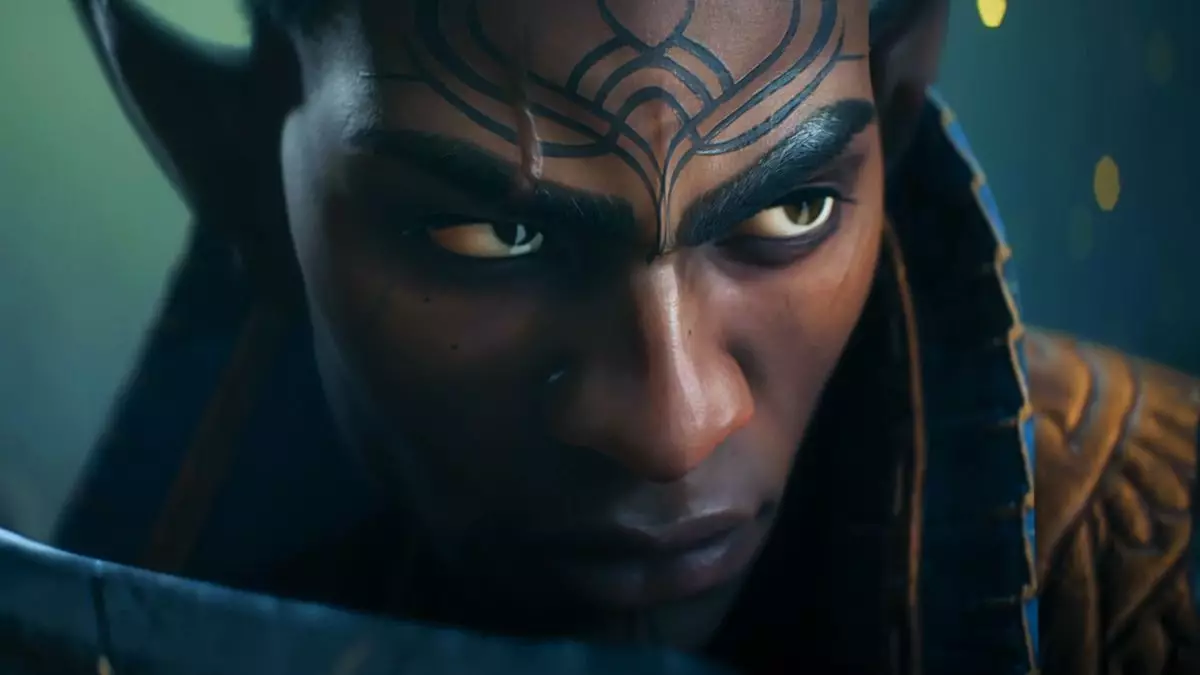Three months since its highly anticipated release, BioWare’s latest installment in the Dragon Age series, *Dragon Age: The Veilguard*, is navigating a tumultuous post-launch environment. Despite garnering critical acclaim and enthusiastic reviews from a dedicated cohort of fans, the title has failed to capture the broader audience that Electronic Arts (EA) was banking on. With reported sales plummeting nearly 50% below expectations, concerns loom over the viability of both the game and the studio’s future.
EA CEO Andrew Wilson’s recent comments during an earnings call paint a harrowing picture of the game’s commercial performance. Despite referencing the “high-quality launch” and robust critical reception, Wilson acknowledged that the game “did not resonate with a broad enough audience” in an increasingly crowded and competitive gaming market. This admission starkly contrasts with the expectations set before launch and highlights the perilous nature of modern game marketing, where even celebrated franchises can struggle to meet financial benchmarks.
The Shift in Gaming Industry Expectations
The detailed analysis presented by EA’s chief financial officer, Stuart Canfield, reveals an industry in flux. Traditionally, blockbuster storytelling has been a hallmark strategy for engaging audiences and fostering loyalty among game franchises. However, Canfield’s remarks suggest a reevaluation of this approach, emphasizing that evolving player preferences are dramatically reshaping the market landscape. The underperformance of *The Veilguard* could serve as a critical lesson for publishers: traditional formulas may no longer suffice in securing commercial success.
The whispers of developer layoffs at BioWare echo loudly within the gaming community, signaling potential turmoil within a company that has long been synonymous with rich narrative-driven experiences. Fans of *Dragon Age* are left grappling not just with disappointment in sales figures, but also with concern over possible implications for future titles in a beloved series. A franchise that once seemed stable may find itself at a crossroads, struggling to balance innovation with the expectations of long-time fans.
Fan Reaction and the Path Forward
Despite these setbacks, the loyal fan base remains vocal about their appreciation for *The Veilguard*, with many reviewers praising it as a return to form for BioWare’s RPG storytelling. Enthusiastic endorsements from both consumers and critics suggest that while the game’s reach may have been limited, its quality is undisputed. This duality presents a significant challenge for EA and BioWare: how to honor the tastes of devoted fans while expanding their reach to attract new players.
Looking ahead, it is imperative for EA to refine its strategies. The reception of *The Veilguard* urges a deeper analysis of consumer behavior in the current gaming climate. Engaging existing fans while also broadening the appeal could be the key to revitalizing the franchise. As the gaming industry pivots, so too must the strategies of its key players, ensuring that titles like *Dragon Age* can thrive without sacrificing the creative essence that defines them.
*Dragon Age: The Veilguard* exemplifies the tension between creative ambition and market realization, presenting a critical moment for BioWare and the broader gaming community. How they respond can shape not only the future of the franchise but the directions of narrative-driven gaming at large.


Leave a Reply